| Article ID | Journal | Published Year | Pages | File Type |
|---|---|---|---|---|
| 2012033 | Pharmacological Reports | 2010 | 11 Pages |
Phosphodiesterase (PDE) inhibitors can regulate the activity of immune cells by increasing intracellular levels of cyclic nucleotides. The aim of this study was to determine the effects of milrinone, a selective PDE3 inhibitor, sildenafil, a selective PDE5 inhibitor, and aminophylline, a nonselective PDE inhibitor, on lymphocyte subsets and humoral immune response in mice when administered in vivo. Aminophylline (20 mg/kg, im), milrinone (1 mg/kg, im) or sildenafil (1 mg/kg, po) were administered to mice either once or five times at 24 h intervals. Some mice were immunized with a sheep red blood cell (SRBC) suspension administered ip either 2 h after the single dose or 2 h after the second of the five doses. In non-immunized mice treated five times with PDE inhibitors, the subsets of T lymphocytes in the thymus and T and B lymphocytes in the spleen and mesenteric lymph nodes were determined 12, 24 or 72 h after the last dose. The humoral immune response was determined on days 4, 7 and 14 after SRBC injection in SRBC-immunized mice treated with PDE inhibitors. Amodulating effect of the drugs on lymphocyte subpopulations was observed. The greatest impact was observed in splenocyte subpopulations, and resulted in decreased percentages of B cells (CD19+) and increased percentages of T cells (CD3+, CD4+, CD8+). No effect or slight influence of the drugs on anti-SRBC hemagglutinins was observed, but the number of plaque-forming splenocytes was increased. The drugs under investigation did not show a significant immunosuppressive effect.
